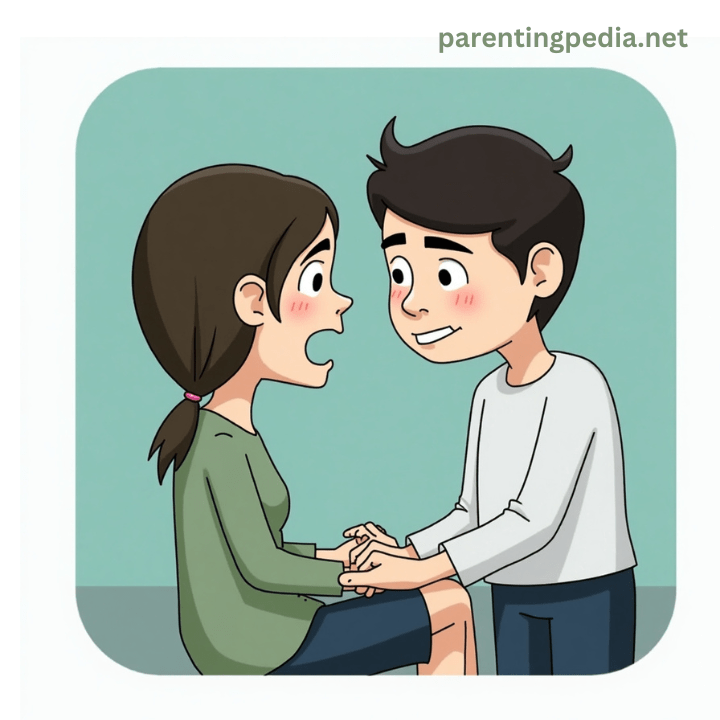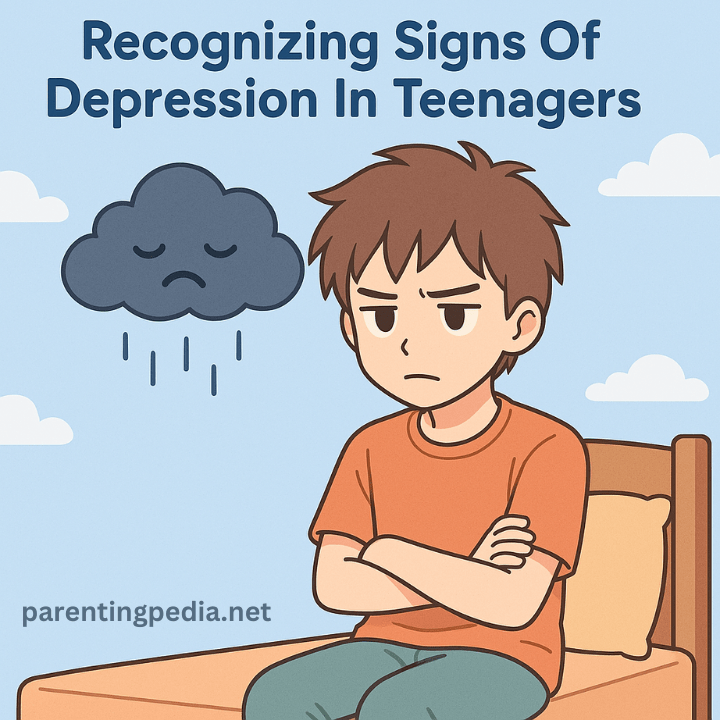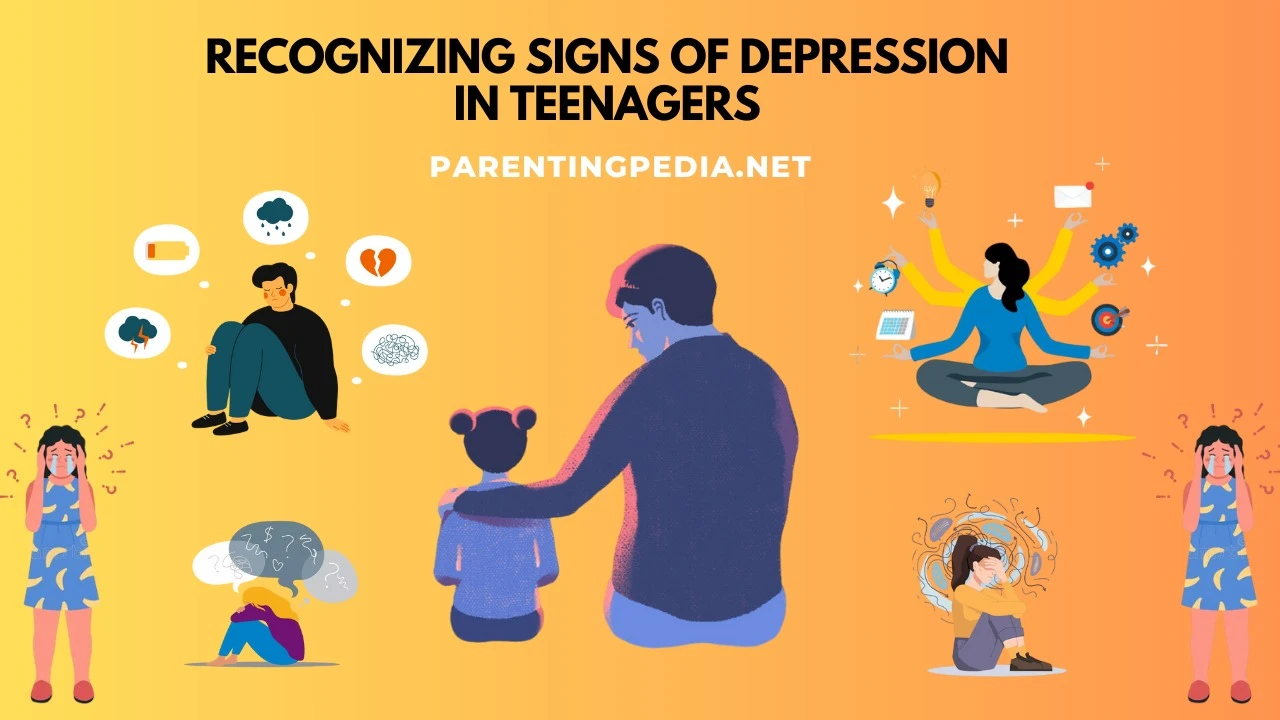Teenage years are a period of significant emotional, physical, and social change. While mood swings and occasional sadness are common in adolescents, prolonged feelings of sadness, hopelessness or withdrawal could be signs of depression in teenagers. Teenage depression is more than just feeling sad. It is a serious mental health condition that affects how a teenager thinks, feels, and behaves. Many parents and caregivers struggle to distinguish between typical teenage behavior and depression. This article will help you recognize the signs of depression in teenagers, understand the causes and learn how to provide support to teenagers.
Understanding Teenage Depression
Depression in teenagers is a mental health condition that affects their mood, thoughts and overall well-being. It can impact their academic performance, relationships, and ability to enjoy life. Unlike temporary sadness, depression lingers for weeks or months, making daily activities feel overwhelming. Depression in teens often goes unnoticed because symptoms can be mistaken for normal teenage behavior. However, recognizing early warning signs can help in seeking timely professional support and preventing long-term mental health issues.
Common Signs Of Depression In Teenagers
Teenage depression can be evident in emotional, behavioral, and physical ways. Here are key signs to look for:
1. Persistent Sadness And Hopelessness
One of the most common signs of depression in teenagers is an overwhelming sense of sadness that lasts for weeks or longer. Teens with depression may feel hopeless, empty, or worthless even when things seem to be going well.
2. Loss Of Interest In Activities
A teen who once enjoyed hobbies, sports or social activities may suddenly lose interest in them. They may stop engaging in things they used to love, preferring isolation instead.
3. Changes In Sleep Patterns
Depression in teenagers can lead to insomnia (difficulty sleeping) or excessive sleep. Some teens may struggle to fall asleep, while others may sleep for long hours yet still feel exhausted.
4. Fatigue And Low Energy
A teenager experiencing depression may frequently feel tired, even after a full night’s sleep. Simple tasks may feel overwhelming and they may complain of having no energy.
5. Irritability And Mood Swings
While occasional mood swings are normal in teenagers, extreme irritability, frustration or frequent angry outbursts can be signs of depression in teenagers. They may become easily annoyed and react aggressively to minor issues.
6. Social Withdrawal
Depressed teens may distance themselves from family, friends and social activities. They may prefer to spend time alone, avoid conversations and seem uninterested in forming connections.
7. Changes In Appetite And Weight
Depression in teenagers can lead to significant changes in eating habits. Some teens may lose appetite, resulting in weight loss, while others may binge eat as a way to cope, leading to weight gain.
8. Decline In Academic Performance
A sudden drop in grades or lack of motivation in school can be a sign of depression in teenagers. Teens may struggle to focus, feel unmotivated or lose interest in their studies.
9. Feelings Of Guilt Or Worthlessness
Depressed teenagers may have negative self-perceptions, believing they are failures or that they are a burden to others. They may express feelings of guilt or blame themselves for things that are beyond their control.
10. Engaging In Risky Or Self-Destructive Behavior
Some teens cope with depression by engaging in risky activities such as substance abuse (alcohol or drugs), reckless driving or self-harm (cutting, burning, etc.). These behaviors indicate a deeper struggle with emotional pain.
11. Complaints Of Physical Symptoms
Depression can cause unexplained physical symptoms such as headaches, stomachaches, muscle pain or digestive issues. These symptoms often persist despite no clear medical cause.
12. Thoughts Of Death Or Suicide
The most serious sign of teenage depression is suicidal thoughts or behaviors. If a teen talks about wanting to die, expresses hopelessness about the future or engages in self-harm, immediate intervention is needed. Always take such statements seriously and seek professional help immediately.

Causes Of Depression In Teenagers
Depression does not have a single cause. It often results from a combination of biological, psychological and environmental factors. Here are some common causes:
1. Genetics And Family History
A family history of depression or other mental health disorders can increase a teen risk of developing depression in teenagers. If parents or close relatives have struggled with depression, the likelihood of the teen experiencing it is higher.
2. Hormonal Changes
Adolescence is a time of significant hormonal changes, which can affect mood regulation. Some teens may be more vulnerable to depressive symptoms due to hormonal fluctuations.
3. Brain Chemistry Imbalance
Depression is linked to an imbalance of brain chemicals that regulate mood. An imbalance in these chemicals can contribute to persistent sadness and emotional distress.
4. Traumatic Experiences
Experiencing abuse, neglect, bullying, parental divorce or the death of a loved one can trigger depression in teenagers. Trauma can lead to deep emotional wounds, making it difficult for teens to cope with their emotions.
Also Read: Teaching Financial Literacy To Kids And Children
5. Academic Pressure And Stress
Many teenagers experience extreme pressure to perform well in school, excel in extracurricular activities and meet parental expectations. This pressure can lead to anxiety, stress and eventually depression.
6. Social Isolation And Peer Problems
Struggles with friendships, rejection, bullying or feeling left out can significantly impact a teen’s self-esteem. Social difficulties can make them feel lonely and disconnected, increasing the risk of depression.
7. Unhealthy Home Environment
Growing up in a household with frequent conflict, neglect or lack of emotional support can contribute to depression. Teens who feel unsupported at home may struggle to express their emotions and seek help.
8. Excessive Social Media Use
Social media can negatively affect mental health by promoting unrealistic beauty standards, cyberbullying and the pressure to seek validation through likes and comments. Comparing themselves to others online can make teens feel inadequate.
How To Support A Teen Struggling With Depression
Recognizing the signs of depression is the first step. If you suspect that a teenager is struggling, here are ways to provide support:
1. Encourage Open Communication
- Let the teen know they can talk to you without fear of judgment.
- Be patient and listen actively without dismissing their feelings.
- Avoid phrases like “It’s just a phase” or “Cheer up.” Such phrases in front of teenagers can make them feel misunderstood.
2. Provide Emotional Support
- Reassure them that they are not alone.
- Validate their feelings and acknowledge their struggles.
- Spend quality time together doing activities they enjoy.
3. Seek Professional Help
- If depression symptoms persist, consult a therapist, counselor, or psychiatrist.
- Therapy such as Cognitive Behavioral Therapy (CBT) can help teens develop coping strategies.
- In severe cases, medication may be recommended by a doctor.
4. Promote Healthy Lifestyle Habits
- Encourage regular exercise, as physical activity boosts mood.
- Ensure they get enough sleep to regulate emotions.
- Promote a healthy diet rich in nutrients that support brain function.
5. Limit Social Media And Screen Time
- Encourage breaks from social media to reduce comparison and negativity.
- Monitor online activity of teens to protect them from cyberbullying.
6. Be Alert To Suicidal Warning Signs
If a teen talks about wanting to die, harming themselves or feeling hopeless, take it seriously. Seek immediate professional help and provide constant emotional support.

Conclusion
Recognizing depression in teenagers is essential for early intervention and support. While teenage mood swings are common, persistent sadness, withdrawal, irritability, and self-destructive behaviors may indicate something more serious. Understanding the causes, warning signs and ways to help can make a significant difference in a teenager’s life. By promoting open communication, offering emotional support and seeking professional help when needed, parents, caregivers and educators can help teens face their struggles and build a brighter future. No teen should have to face depression alone. Proper support and understanding from parents can change their life.
FAQ
How to recognize depression in teenagers?
Recognizing depression in teenagers involves noticing symptoms such as persistent sadness, mood swings, irritability, withdrawal from family and friends, loss of interest in activities, sleep changes, fatigue, poor concentration, and declining academic performance. Other signs of depression include low self-esteem, risky behavior, unexplained physical complaints or suicidal thoughts. Early intervention is crucial for their well-being.
What are the symptoms of depression in adolescents?
Symptoms of depression in adolescents include persistent sadness, irritability, mood swings, loss of interest in activities, social withdrawal, sleep disturbances, fatigue, difficulty concentrating, poor academic performance, changes in appetite, feelings of worthlessness and self-harm tendencies. In severe cases, they may express hopelessness or suicidal thoughts, requiring immediate attention.
Remember, the greatest reward of parenting lies in watching
your children soar with love and confidence.
Till then keep smiling and be happy

